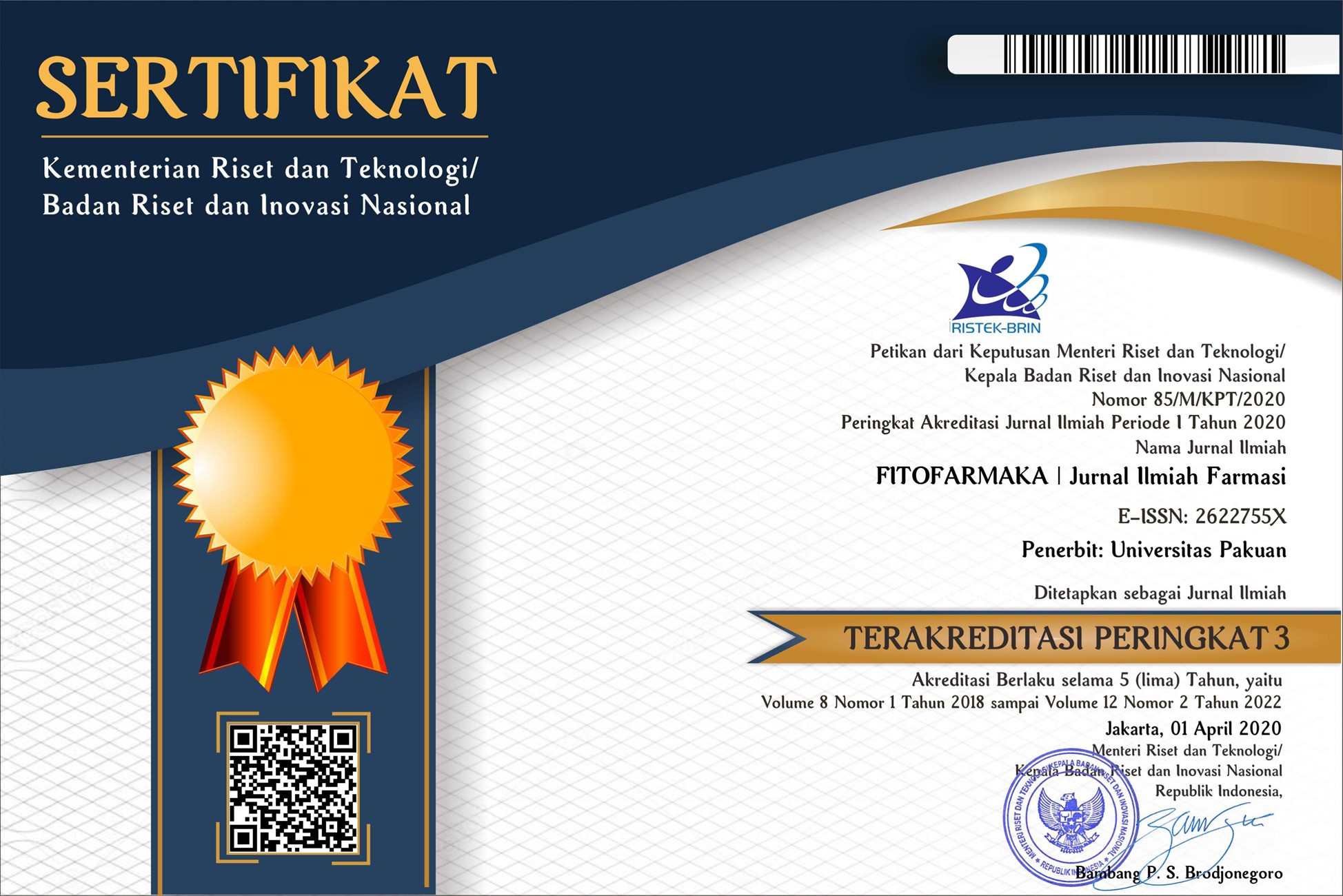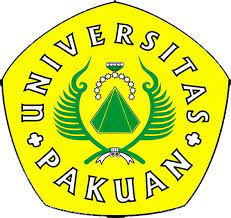Rationalization of Empiric Antibiotics Therapy in Patients Hospital Acquired Pneumonia at the East OKU Regional General Hospital
Abstract
The use of antibiotics requires special attention to improve the quality of therapeutic results and prevent antimicrobial resistance. Through judicious administration of antibiotics, it is hoped that there will be an impact on the quality of treatment and control of microbial resistance. The method used in this research is descriptive analysis with a cross-sectional and retrospective research design, collecting data from medical record at East OKU Hospital for the period of 2016-2022. The analysis of the rationalization of the use of empiric antibiotics therapy showed that 65 % fell into the rational category, 35 % were irrational and had a total defined daily dose (DDD) value of 70.96 DDD/100 days of hospitalization.
Keywords
References
American, Society. Thoracic., and Infectious, Society. Diseases of America. (2005). Guidelines for the Management of Adults with Hospital-acquired, Ventilator-associated, and Healthcare-associated Pneumonia. Am J Respir Crit Care Med, 388-416.
Cosgrove E.S. et al. (2015) Antibiotic Guidelines 2015-2016: Treatment Recommendation for Adult Inpatients. John Hopkins Medicine.
Ilmi, T. Y. (2020). Evaluation of the Use of Antibiotics in Pneumonia Patients at Tulungagung Regional General Hospital.Indonesian Journal of Pharmaceutical Innovation (JAFI).
Indonesia, K. K. (2019) National Riskesdas Report. Jakarta: Publishing Institution, Health Research and Development Agency (LPB).
Indonesia, P. D. (2003). Nosocomial Pneumonia Diagnosis and Management Guidelines in Indonesia. Medan: Indonesian Lung Doctors Association.
Indonesian Lung Doctors Association. (2003). Community Pneumonia - Diagnosis & Management Guidelines in Indonesia. Jakarta: FK UI Publishing Agency.
Indonesian Lung Doctors Association. (2014). Community Pneumonia: Guidelines for Diagnosis and Management in Indonesia.Jakarta: Indonesian Lung Doctors Association.
Japanese, T., & Society, R. (2004). Principles for the development of the guidelines. Respirology (Carlton, Vic.), 9 Suppi 1, S1-S2.https://doi.org/10.1111/j.1440-1843.2003.00541.x.
Kemenkes RI. (2015). Regulation of the Minister of Health of The Republic of Indonesia No. 8 Year 2015 Concerning Antimicrobial Resistance Control Program In Hospitals. Jakarta: Kemenkes RI.
Langke, N., Ramli, H.A., & Martin, L. (2016). Chest Photo Image of Pneumonia in the Radiology Department/SMF of FK UNSRAT / RSUP PROF. DR. R.D Kandou Manado Period 1 April – 30 September 2015.Jurnal E-Clinic (ECL). Volume 4, Numbers 1:1-5.
Mahmudah, F., Sumiwi, S., Hartini, & S. A. (2016). Antibiotic Use Study Based on ATC/DDD and DU 90% in the Digestive Surgery Department in One Hospital in Bandung. Indonesian Journal of Clinical Pharmacy. Vol. 5(4): 293-398.
Marsam, S. (2003). Relationship between Cotton Dust Exposure and Lung Function Impairment (VC, FV and FEVI) in Mattress Makers in Banjakerta Village, Karanganyar District, Purbalingga Regency, [Thesis]. Faculty of Public Health, Diponegoro University, Semarang.
Ministry of Health of the Republic of Indonesia. (2011). Rational Drug Use Module. Jakarta: Ministry of Health of the Republic of Indonesia.
Ministry of Health of the Republic of Indonesia. (2013). Basic Health Research 2013. Jakarta: Health Research and Development Agency, Ministry of the Republic of Indonesia.
Perhimpunan Dokter Paru Indonesia. (2003). Communicable Pneumonia: Guidelines for Diagnosis and Management in Indonesia. Jakarta: Indonesian Lung Doctors Association.
Sari, A. & Safitri, I. (2016). Study of Antibiotic Use in Pediatric Pneumonia Patients in Hospitals. PKU Muhammadiyah Yogyakarta Using the Defined Daily Dose (DDD) Method, Ibnu Sina Scientific Journal. Vol: 1(2): 151-162.
The Japanase Respiratory Society (THE JRS). (2004). Guidelines for the Diagnosis and Treatment of COPD (Chronic Obstructive Pulmonary Disease). 2nd ed. The Japanase Respiratory Society.
Wahid, A. & Imam, S. (2013). Medical Surgical Nursing, Nursing Care for Respiratory System Disorders.East Jakarta : Trans Info Media.
Wardhana, W. A. (2001). Impact of Environmental Pollution. Andi, Yogyakarta.
World Health Organization. (2015). Guidlines for ATC Classification and DDD Assignment. Norway: Norwegian Institute of Public Health.
DOI: 10.33751/jf.v13i2.8942
 Abstract views : 83
Abstract views : 83
Refbacks
- There are currently no refbacks.















